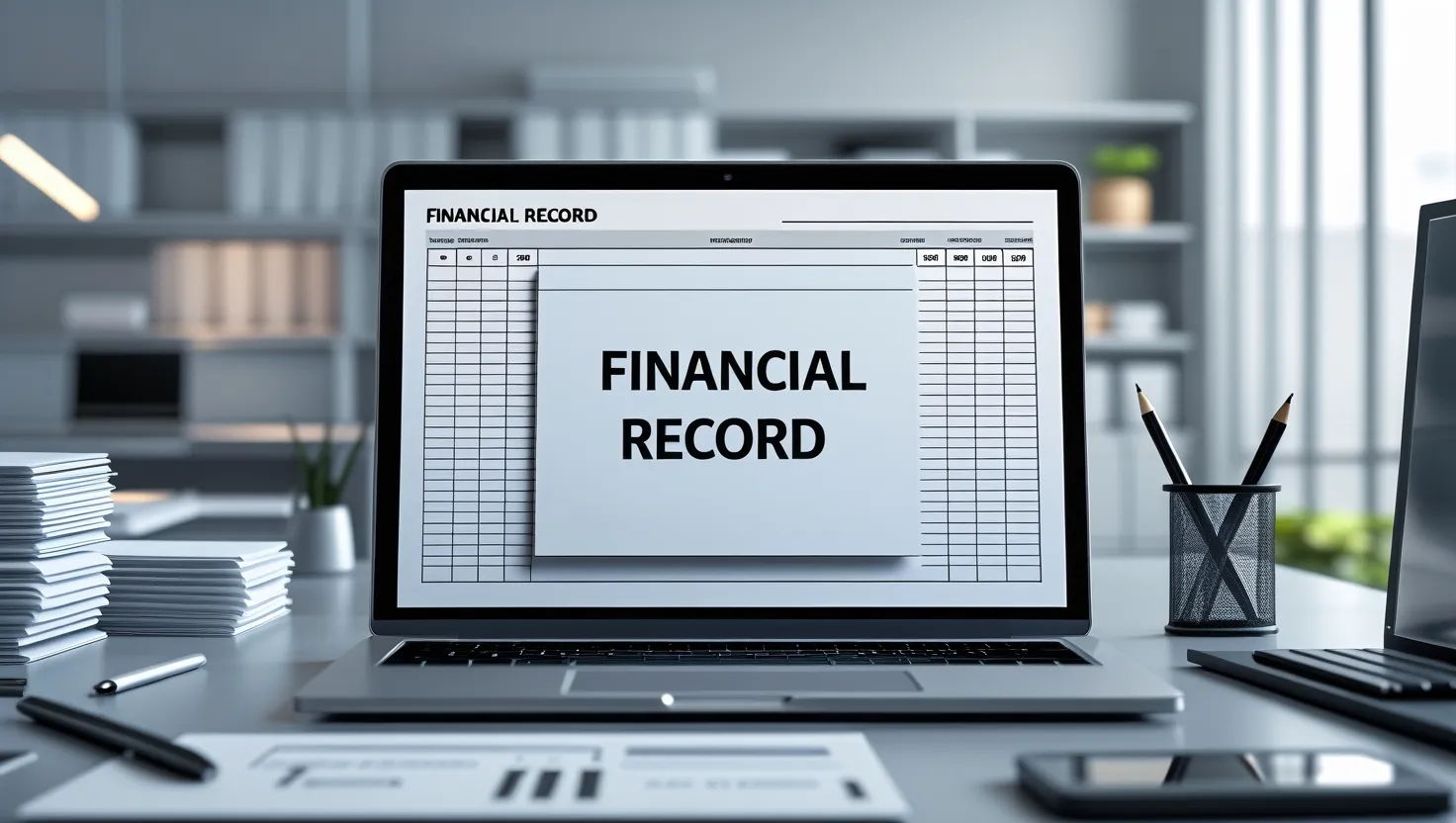
Introduction #
Financial records are papers or files that show how money moves in and out of a business. They include things like bills, receipts, and bank statements.
For small businesses, these records are crucial. They help you know how much money you’re making and spending. They also help you make smart choices, pay taxes correctly, and grow your business.
Why Financial Records Matter for Small Businesses in India
If you run a small business in India, keeping good financial records is key. These records show that your business is doing well. They help you get loans from banks or attract new investors. Without these records, it’s hard to prove that your business is making a profit.
Helping Your Business Work Better
Having clear and correct records helps your business run smoothly. It keeps you on track with taxes and rules. Plus, it helps you avoid problems, like paying fines or losing trust with banks and clients.
What Makes a Good Financial Record? #
Reflects Overall Financial Health
Effective records offer a clear picture of your business’s financial condition. They track income (money earned), expenses (money spent), assets (what you own), and liabilities (what you owe). This comprehensive view helps you make informed business decisions.
Supports Financial Reporting
Maintaining proper records allows you to create accurate reports such as income statements and balance sheets. These reports highlight business performance over time and stakeholders like banks or investors can share them when needed.
Simplifies Tax Filing
Well-maintained records reduce the risk of errors during tax season. With everything documented correctly, you can file returns confidently and avoid penalties or issues with tax authorities.
Monitors Cash Flow
Financial records show how money enters and exits your business. Regularly tracking this flow helps you ensure there’s enough cash to cover bills and invest in growth opportunities.
Aids in Planning and Goal-Setting
Historical data helps you forecast future income and expenses. You can set budgets, allocate resources wisely, and track progress toward long-term goals, improving your chances of sustained growth.
Why Financial Records Help Small Businesses #
- Simplifies Planning: Clear records show how much to save or spend, helping you grow steadily.
- Aids Smarter Decisions: Knowing your finances helps you decide when to invest, hire, or expand.
- Builds Credibility: Accurate records earn trust from banks, investors, and partners.
- Ensures Legal Safety: Keeping proper records helps you follow Indian laws and avoid penalties.
- Supports Growth: Regular reviews show what works, so you can focus on what boosts profits.
Simple Steps to Keep Financial Records #
- Gather Financial Documents: Keep all invoices, receipts, and statements ready to simplify later tracking.
- Sort by Category: Group records into income, expenses, assets, and liabilities for better clarity.
- Record Promptly: Log each transaction immediately using a ledger or app to avoid missing entries.
- Reconcile with Bank: Compare your records to bank statements monthly to catch and correct errors.
- Review Consistently: Check finances weekly or monthly to monitor cash flow and control spending.
- Secure Your Records: Protect paper files and store digital copies safely with passwords and cloud backup.
- Update Routinely: Keep records current by updating them regularly to avoid future confusion.
Common Problems and How to Solve Them #
- No Reliable System: Tossing receipts in a box won’t work. Use digital tools for faster, organised recordkeeping.
- Frequent Errors: Manual entries cause mistakes. Always double-check figures to ensure accuracy.
- Time-Consuming: Bookkeeping feels heavy. Use automation tools to reduce effort and stay tidy.
- Inaccurate Figures: Wrong data misleads decisions. Conduct periodic audits to verify accuracy.
- Tax Issues: Poor records complicate tax filing. Stay compliant and consult a tax expert when needed.
Best Ways to Keep Financial Records #
- Update Weekly: Choose a fixed day to revise records—prevent buildup and reduce errors.
- Use Accounting Software: Tools like Vyapar app streamline tasks and reduce duplication.
- Review Monthly: Scan reports for missing entries or errors to stay audit-ready.
- Categorize Clearly: Group similar expenses and income for better insights and tracking.
- Secure Your Data: Use strong passwords, limit access, and keep backups in safe locations.
How Vyapar App Helps #
- Quick and Easy Bookkeeping: It helps you record daily deals without much work. Fast and simple.
- Custom Reports: You can make all kinds of reports with Vyapar app. This helps you understand your business better and share results with others.
- Track Your Spending in Real-Time: Know what you’re spending as it happens. This keeps your budget safe and helps you avoid going over your limits.
FAQ’s: #
What are financial records?
They are things like bills, receipts, and bank papers that show how your business handles money.
How often should I update them?
Updating your records every day or at least once a week is best.
Do financial records affect my credit score?
Not directly. But good records help you get loans, and that affects your score.
What happens if I don’t keep records?
You could face fines, make tax mistakes, or make bad business choices.
What should be in a financial record?
Include invoices, bills, receipts, orders, and bank statements.
Conclusion #
Good financial records help small businesses stay strong and grow. They keep you out of trouble, help you make smart choices, and let others trust your business. If you use tools like the Vyapar App and follow simple habits like regular updates and audits, you’ll have everything you need to succeed.
Use Vyapar App to handle billing, stock & payments all in one place.
Make bills, track stock, and handle payments in one place.
